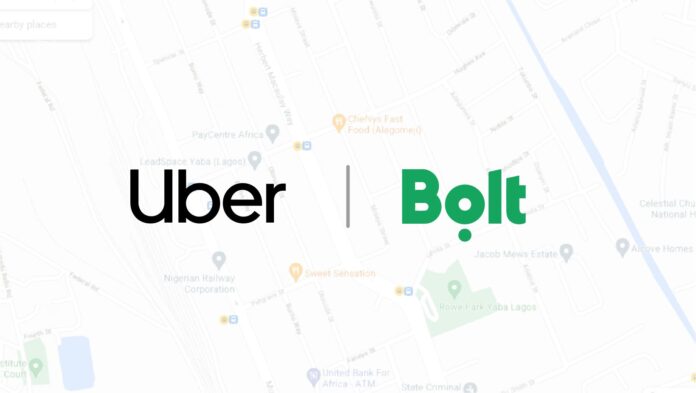Uber and Bolt rides popular with middle class city dwellers
By Jeph Ajobaju, Chief Copy Editor
Collateral consequences of Russian invasion of Ukraine are being felt in countries far and near, including Nigeria where doubt erodes hope of normal fuel supply after three weeks of scarcity, forcing the two biggest ride-hailing firms to double fares.
Uber and Bolt have raised fares in Lagos, Abuja, and other major cities by over 100 per cent, piling more stress on middle class folks without cars who rely heavily on these firms for daily commute.
Local transporters have also raised fares with multiplier effects on the prices of food and other commodities, fast moving consumer goods (FMCGs) and luxury ones alike.
Only Bus Rapid Transit (BRT) firms who buy fuel in bulk direct from marketers have not raised fares in Lagos. But BRT does not cover all routes in a megacity of 15 million people with at least another 5 million outside the metropolis.
Uber and Bolt drivers and riders all said imported adulterated petrol which led to scarcity of genuine fuel is the cause of the rise in pump price as well as transport fares.
Fuel scarcity means there are fewer cars available for riders, creating a surge in fares. The fare for a ride from Lekki to Ikorodu road that cost between N2,500 and N3,000 has risen to N6,000.
_______________________________________________________________
Related articles:
Higher transport costs raise food prices
Fuel sells for N600 pl. Scarcity worsens. Buhari is missing
Petroleum Minister Buhari shifts fuel palaver blame on others
Buhari ignores yearly $4b oil theft, insists on taking loans
__________________________________________________________________
Purchasing power weakened
Thousands of commuters rely on ride-hailing cars and bikes to move around in cities and the increase in fares has hit their disposable income, weakening their purchasing power, per reporting by Nairametrics.
Work from home policies adopted by companies to stave off the pandemic have been relaxed, meaning more people need to ride to work.
The longer the fuel scarcity persists, the harder it is for ordinary Nigerians to afford ride-hailing transportation.
Some drivers request riders pay them in cash or transfer money to their bank accounts rather than through online payment to ride-hailing firms.
Transaction through ride-hailing firms causes driver to wait longer wait longer for drivers and also incurs form them higher charges.
Fuel palaver
Nigeria is in the throes of three weeks of fuel scarcity sparked by contaminated imported fuel that caused a supply shock. Long queues persist at major filling stations and black market operators sell at nearly twice the pump price.
Petrol sells at between N200 and N600 per litre, against the approved price of between N162 and N165. Diesel price has jumped to N430 per litre.
Nigeria imports refined petroleum products despite billions of naira spent yearly on four refineries and promises by President Muhammadu Buhari to fix them.
Other countries are also facing higher energy prices but theirs are due mainly to the rise in crude oil prices and the Russian with Ukraine.













